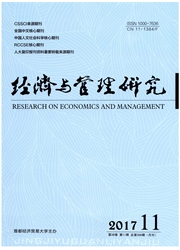

 中文摘要:
中文摘要:
如何在多重制度主体的制约下获取创新合法性,是每个创新型企业都必须解决的问题。本文采用文献分析法和案例研究法,以阿里巴巴1999—2016年的案例信息为分析对象,从多重制度逻辑出发,分析不同制度逻辑主导下企业创新合法化战略行为对创新合法性的影响机理。研究发现专业逻辑、合作逻辑、社区逻辑和家族逻辑对创新合法性具有正向促进作用,其中合作逻辑的影响效应最为明显;而市场逻辑和管制机构逻辑对创新合法性的影响则具有一定弹性。在操作层面上,不同制度逻辑主导的产品营销、高管专业化、战略联盟、社会责任以及规范化运营等战略行为对创新合法化都具有重要作用,且以战略联盟效果最为明显。企业可以据此调整战略行为适应制度环境,以便实现创新合法化。
 英文摘要:
英文摘要:
By adopting the methods of documentary analysis and case study, according to the data of Alibaba Group from 1999 to 2016, under multiple institutional logics ,this paper analyses the different influences exerted by enterprises' strategic behaviors on the innovation legitimacy. The study shows that profession logic, cooperative logic, community logic and family logic are positive correlation with innovation legitimacy, and the effect of cooperative logic is the most obvious;while there is an elastic correlation among market logic, regulatory agency logic and innovation legitimacy. On the operational level, strategic behaviors such as product marketing, executives specialization, strategic alliance, social responsibility and standardized operation play important roles in the legalization of innovation, and the effect of strategic alliance is the most obvious. Therefore, enterprises may adjust strategic behaviors to adapt institution environment to realize innovation legalization.
 同期刊论文项目
同期刊论文项目
 同项目期刊论文
同项目期刊论文
 期刊信息
期刊信息
